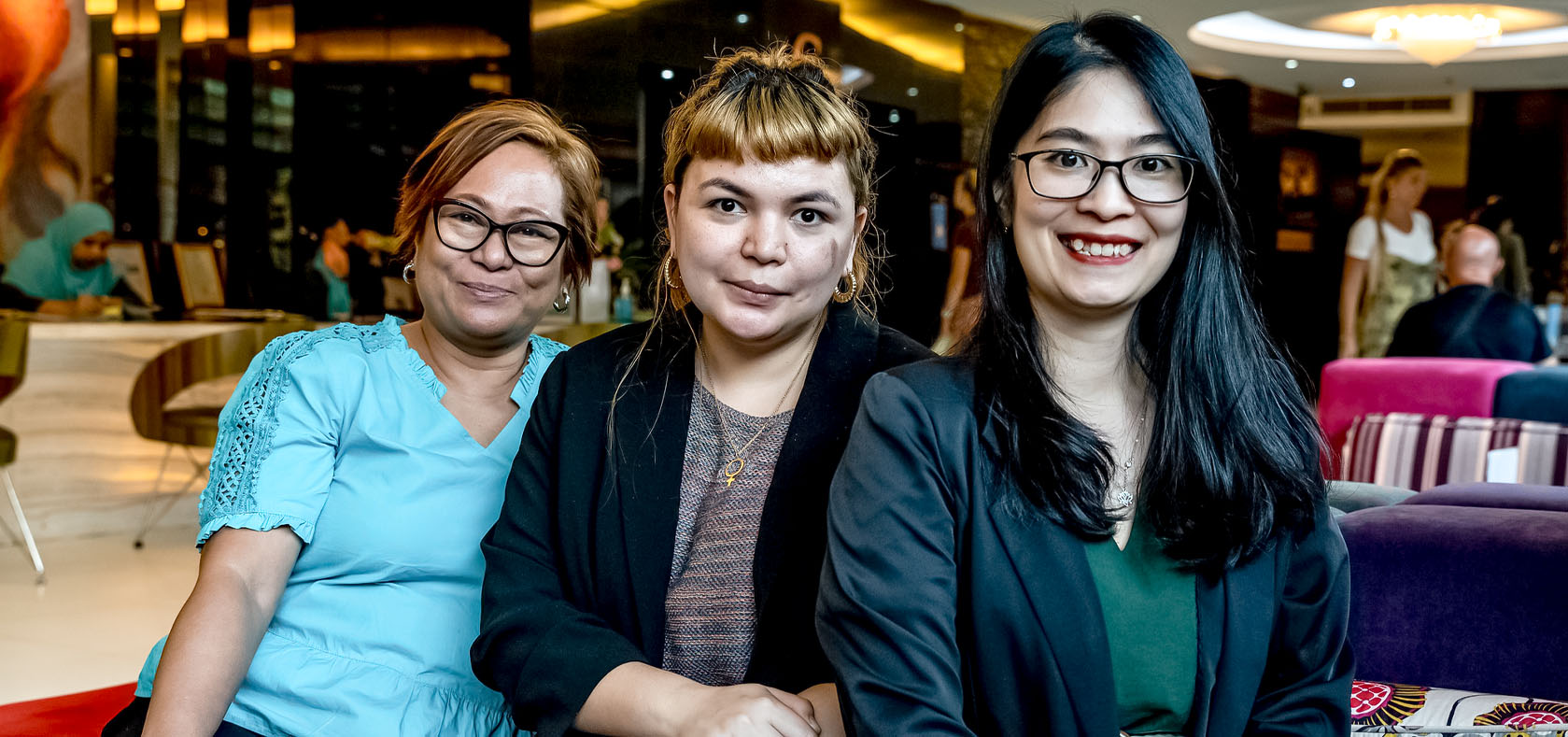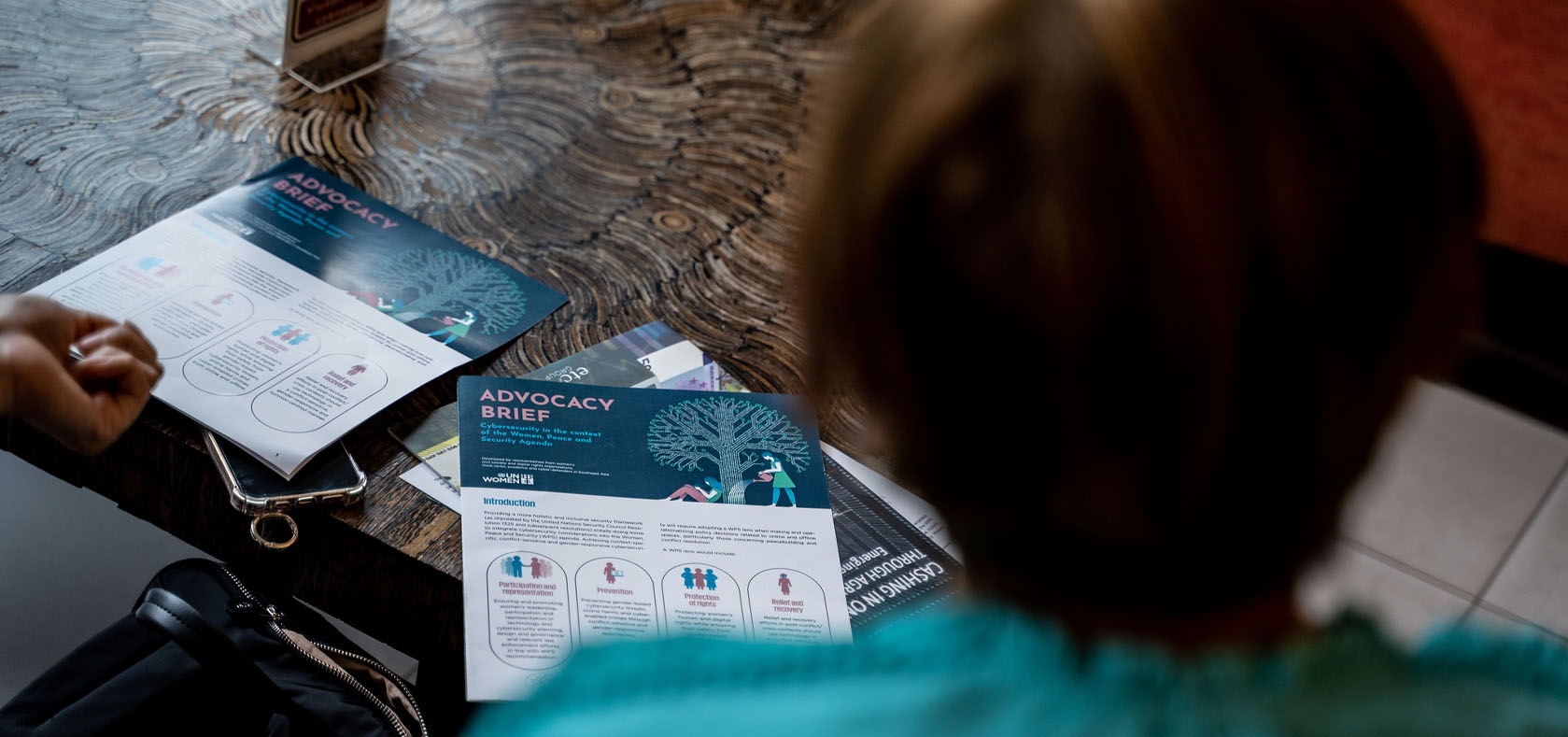Members from a UN Women-supported Network Contribute to Regional Dialogues on the 67th Session of the Commission on the Status of Women
Date:
Author: Alexandra Håkansson Schmidt

Bangkok, Thailand — A regional consultation took place in Bangkok, Thailand, from 8 to 9 February 2023. Held in the lead-up to the 67th session of the Commission on the Status of Women (CSW67), the consultation focused on the CSW67 priority theme, Innovation and Technological Change and Education in the Digital Age for Achieving Gender Equality and the Empowerment of All Women.
A preliminary forum for non-governmental organisations (NGOs) was held from 6 to 7 February 2023 to feed into broader consultations. For both meetings, UN Women supported the in-person participation of five members of the NGO Network for Women, Peace and Cybersecurity (a network which was established with UN Women’s support in 2022).
Lisa Garcia, from the Foundation for Media Alternatives (the Philippines), was among the UN Women-supported participants at the sessions. She explained, “Participating in the forum and regional consultation was a great opportunity for NGOs to raise issues that we think are relevant for the broader discussion at CSW67 and, at the same time, to learn from other participants’ experiences.”
During the forum, representatives from the NGO network raised recommendations from the ‘Advocacy Brief on Cybersecurity in the Context of Women, Peace and Security Agenda’, which they jointly drafted with UN Women’s support at a June 2022 regional workshop. The participants explained how the Brief was useful in approaching government delegations and decision-makers in a united front to convey recommendations to advance conflict-sensitive and gender-responsive cybersecurity policies.

“Although only five of us were able to attend, we carried with us the invaluable ideas and recommendations from numerous advocates who actively contributed to crafting the brief. We hold great hope that these recommendations will be thoroughly implemented," explained Shebana Alqaseer from Young Feminists Collective (the Philippines).
Throughout the main consultation, the NGO network representatives took the floor to offer inputs and interventions for government delegations to consider. Numerous speakers in the plenaries of the regional consultation stressed that women politicians, journalists and human rights defenders suffer several forms of abuse, as online harassment and violence are used to curtail their civic space. The speakers emphasized that this, in combination with gendered disinformation and misogynistic hate speech, is a setback to freedom of expression and will ultimately exacerbate the gender digital divide.
After the consultation, Minh Trang Ngo from Vietnet-ICT (Viet Nam) said, “I hope that the final outcomes of the CSW67 and other policy dialogues will reflect the importance of ensuring that the experiences and perspectives of non-governmental organizations are taken into consideration when formulating cyber-related plans and policies,” emphasizing that the participation of women-led organizations in global processes such as the CSW is crucial.
On 20 March 2023, the agreed conclusions of the CSW67, to which the regional consultations contributed, were adopted. In line with key priorities outlined in the advocacy brief and raised by the NGO network members, the Commission recognised the contribution of digitalization to the full, equal and meaningful participation and involvement of women in peace processes, conflict prevention, conflict resolution and peacebuilding, as well as in ensuring women’s human and digital rights. The conclusions also stressed the importance of inclusive and participatory methods to ensure women’s full and equal leadership in technology development and ICT-related policy frameworks, echoing calls made by the NGO network members and other participants.
When closing the Commission, UN Women Executive Director Sima Bahous expressed gratitude for “the creativity, energy, and substantive contributions from across civil society and our youth delegates […] who have brought a fresh and much needed perspective to this year’s CSW,” stressing the importance of collective commitment to gender equality and a more connected world.
This event was organized under the regional project Women, Peace and Cybersecurity: Promoting Women’s Peace and Security in the Digital World. The project, supported by the Governments of the Republic of Korea and Australia, aims to ensure that governments, civil society and cyberdefenders have increased access to information and capacity-building support to advance gender-responsive cybersecurity, informed by the commitments to the United Nations Security Council Resolution (UNSCR) 1325. For more information, visit the project webpage.